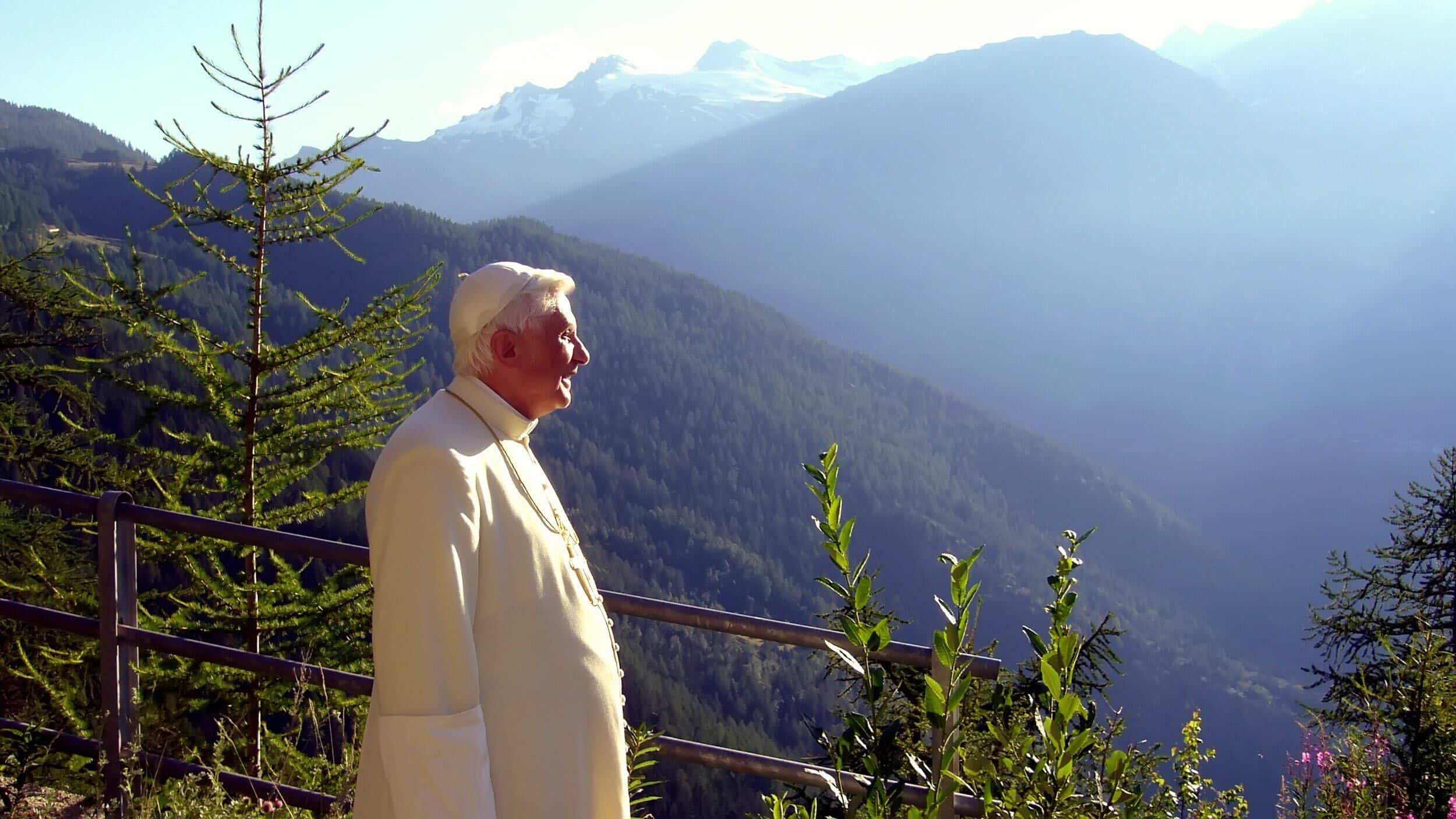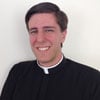Pope Benedict has died at the age of 95 on December 31, 2022. He was a lifelong scholar, a priest for 71 years, and pope from 2005-2013. His entire life was dedicated to knowing Jesus, and now he has the chance to do so in a new way.
Born on April 16, 1927 in Bavaria, Josef Alois Ratzinger came of age under the shadow of the Nazi government. Along with Queen Elizabeth II who died earlier this year, Ratzinger was among the last world leaders who personally experienced World War II.
After the war, Ratzinger entered the seminary and was ordained a priest in 1951. He quickly showed an aptitude for academics and undertook doctoral studies in theology, focusing on St. Augustine and his theology of the Church—themes that would dominate the whole of Ratzinger’s scholarly life. Ratzinger’s abilities as a theologian were quickly recognized, and in spite of his relative youth, the Archbishop of Cologne asked Ratzinger to serve as his theological expert, or peritus, at the soon-to-begin Second Vatican Council.
Pope St. Paul VI made Ratzinger archbishop of Munich in March of 1977, and then cardinal in June of the same year. In 1982, Pope St. John Paul II made Ratzinger head of the Vatican’s doctrinal office, a role he would occupy until his election as Pope Benedict XVI on April 19, 2005.
As a Jesuit and former professor of mine once remarked, “it’s not often that the smartest one in the room is also the one in charge.” Benedict was a prayerful scholar and a wise shepherd. But while Pope Benedict may have gone on to his reward, he leaves behind a great legacy for Catholicism.
Certainly the thing Pope Benedict is most known for now is his decision to renounce the papacy in 2013, leaving public life. The world was stunned, but he remained calm—never showing regret, hesitation, or doubt over his decision. He knew that he had become too weak to guide the Church, and was convinced that Jesus was asking him to step aside. Benedict gave up perhaps the greatest pulpit in the world out of love for Jesus.
Closeness to Jesus was central to Benedict. Throughout his writings, Benedict shows how we see the world differently when we are able to speak with God and be near to Jesus. The very first book he wrote looked at Jesus as the center of history. At Vatican II, he helped draft a document which stressed that Jesus is at the heart of divine revelation. His final books were a trilogy on Jesus which he called “my personal search for the face of the Lord.”
Being in touch with Jesus was the beginning and end of Benedict’s ministry. Talking to a group of children after they had received First Communion, he recalled in fond detail his own experience of First Communion and how “Jesus had entered my heart, he had actually visited me.” Benedict wanted us to experience Jesus before anything else, and then share that experience of Jesus with the world.
Benedict regularly spoke not only about the modern world, but to and with the modern world to help people see the value of Jesus. He was an astute cultural critic who was able to address head-on the problems he observed. In his first encyclical, he even quoted Nietzsche, a move the New York Times called “surprising”: they were amazed that Benedict did not just recite the Catechism at the world, but took the time to address and consider what the world and what secular thinkers had to say, even when they criticized Catholicism.
Benedict engaged the modern world, and he was never afraid to challenge the modern world. He often called attention to the problem of policies that had no deeper goal than furthering the interests of those in power, or that had no substantial considerations of ethics or reality. Speaking to the British Parliament in 2010, he blamed this short-sighted and shallow approach for the Global Financial Crisis that began in 2008, and urged politicians to make decisions in light of enduring ethical norms.
When Benedict fought for the voice of religion in the public square, it was because he saw the need for religious voices to constantly hold politicians to account for their actions, and constantly remind the world that the cosmos is not something we can do with as we please. In his Regensburg Address of 2006, Benedict expressed concerns about separating what we want and desire from notions of truth and goodness, especially stable truth that comes from belief in God. He was worried that an over-reliance on science as a source of knowledge would lead to a too-small view of nature—a view of the cosmos as something which can be mastered, prodded, and manipulated at will.
Many of Benedict’s critiques would later find a home in Francis’ encyclical Laudato si, which praises Benedict’s observations in the opening paragraphs. Like Francis now, Benedict was wary of looking at the cosmos as something to dominate—to create and make as we please without any thought to it or its Creator.
Benedict worked regularly against our using things and people as we please. He promoted a number of environmental initiatives and highlighted the environment in his last encyclical, Caritas in Veritate, leading him to be dubbed “the green pope.” Both before and after being elected pope, he spearheaded the Vatican response to the sex abuse crisis–promoting a zero-tolerance policy and even removing several well-placed individuals from ministry once he became pope. When he came to the United States as pope in 2008, Benedict made it a point to visit personally with a group of survivors of clerical sexual abuse—something he would repeat on subsequent papal trips abroad.
In his humility, Benedict also had a sense of his own limitations. At the conclusion of a book-length interview at the end of his life, he reflected on Pope Francis, saying “I see that [Francis] is a thoughtful person, who grapples intellectually with the questions of our time. But at the same time he is simply someone who is very close to people, who stands with them, who is always among them….Perhaps I was not truly among the people enough.” Never convinced of his own greatness, he was all the more willing to praise others–it was perhaps this sense which gave him such a strong drive to promote Jesus.
The last book Benedict wrote was on the infancy narratives of Jesus, making it especially fitting that he went home to the Lord as we celebrate the Christmas season. In the section on the Holy Innocents, Benedict noted that Matthew’s account omitted words of consolation from Jeremiah’s prophecy, quoting only Rachel’s lament for her children. Benedict noted that “the only true consolation that is more than mere words could be the resurrection.”
As we mark Benedict’s passing days after the Feast of the Holy Innocents, we hope that he will experience the true consolation of the resurrection, and that his legacy of teaching us how to love Jesus in the modern world may ever be continued.
Cover image courtesy of Catholic News Service.


